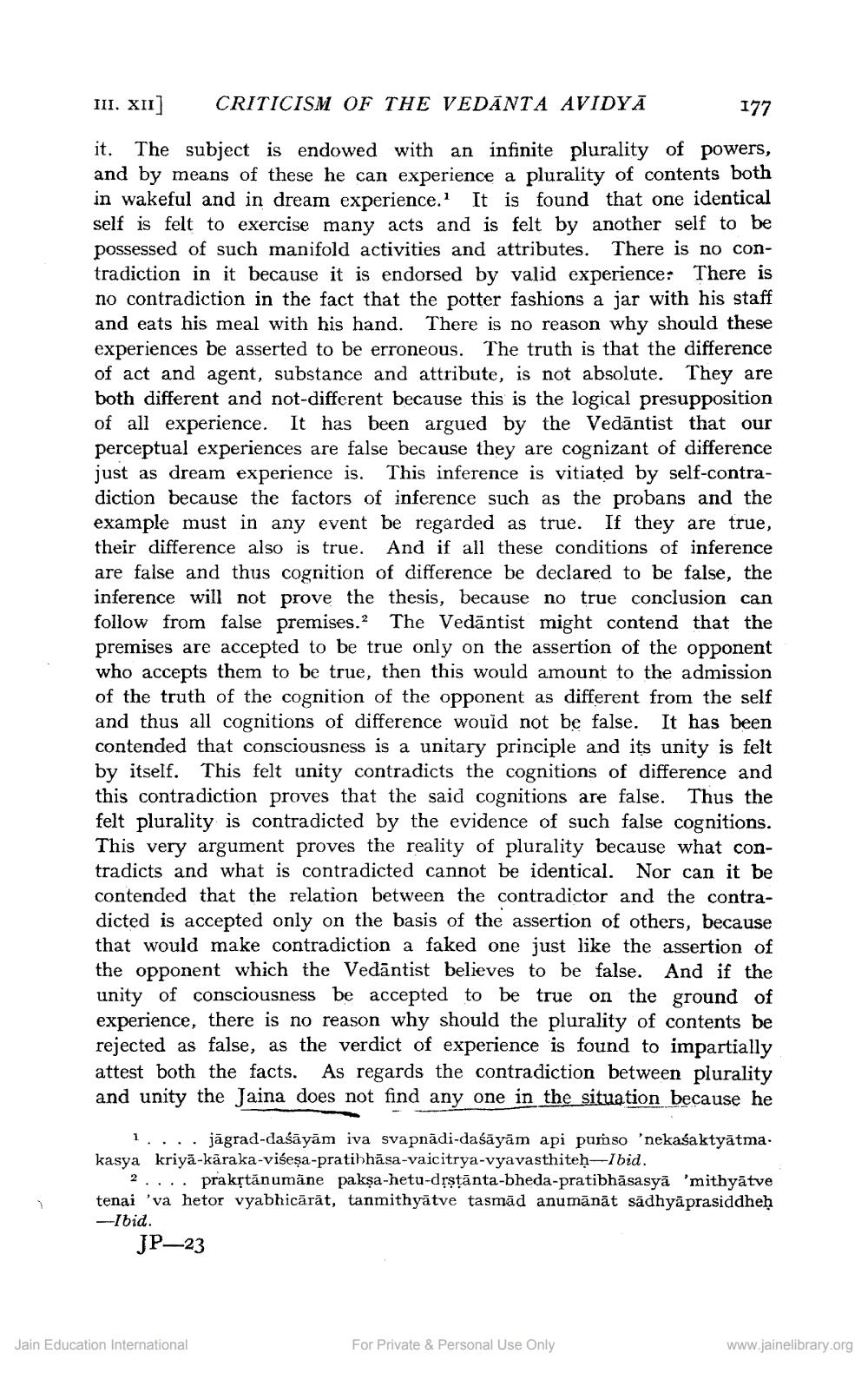________________
III. XII]
CRITICISM OF THE VEDANTA AVIDYA
177
it. The subject is endowed with an infinite plurality of powers, and by means of these he can experience a plurality of contents both in wakeful and in dream experience. It is found that one identical self is felt to exercise many acts and is felt by another self to be possessed of such manifold activities and attributes. There is no contradiction in it because it is endorsed by valid experience: There is no contradiction in the fact that the potter fashions a jar with his staff and eats his meal with his hand. There is no reason why should these experiences be asserted to be erroneous. The truth is that the difference of act and agent, substance and attribute, is not absolute. They are both different and not-different because this is the logical presupposition of all experience. It has been argued by the Vedantist that our perceptual experiences are false because they are cognizant of difference just as dream experience is. This inference is vitiated by self-contradiction because the factors of inference such as the probans and the example must in any event be regarded as true. If they are true, their difference also is true. And if all these conditions of inference are false and thus cognition of difference be declared to be false, the inference will not prove the thesis, because no true conclusion can follow from false premises.2 The Vedantist might contend that the premises are accepted to be true only on the assertion of the opponent who accepts them to be true, then this would amount to the admission of the truth of the cognition of the opponent as different from the self and thus all cognitions of difference would not be false. It has been contended that consciousness is a unitary principle and its unity is felt by itself. This felt unity contradicts the cognitions of difference and this contradiction proves that the said cognitions are false. Thus the felt plurality is contradicted by the evidence of such false cognitions. This very argument proves the reality of plurality because what contradicts and what is contradicted cannot be identical. Nor can it be contended that the relation between the contradictor and the contradicted is accepted only on the basis of the assertion of others, because that would make contradiction a faked one just like the assertion of the opponent which the Vedantist believes to be false. And if the unity of consciousness be accepted to be true on the ground of experience, there is no reason why should the plurality of contents be rejected as false, as the verdict of experience is found to impartially attest both the facts. As regards the contradiction between plurality and unity the Jaina does not find any one in the situation because he
jāgrad-daśāyām iva svapnādi-daśāyām api pumso 'nekaśaktyātma.
prakṛtānumane pakṣa-hetu-dṛṣṭanta-bheda-pratibhāsasya 'mithyātve tenai 'va hetor vyabhicārāt, tanmithyätve tasmād anumānāt sädhyāprasiddheḥ -Ibid.
JP-23
1
kasya kriyā-kāraka-viseṣa-pratibhasa-vaicitrya-vyavasthiteḥ-Ibid.
2
Jain Education International
For Private & Personal Use Only
www.jainelibrary.org




